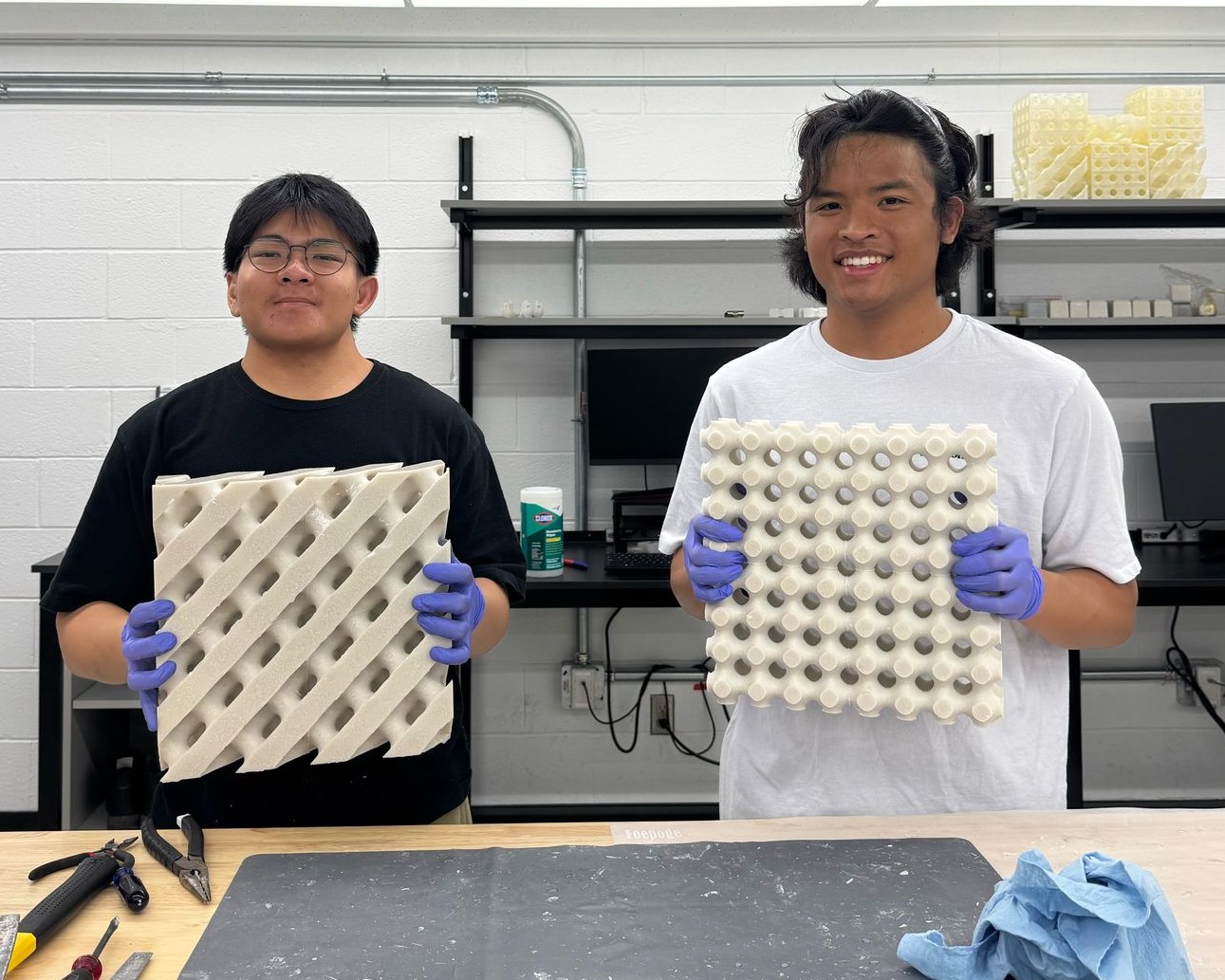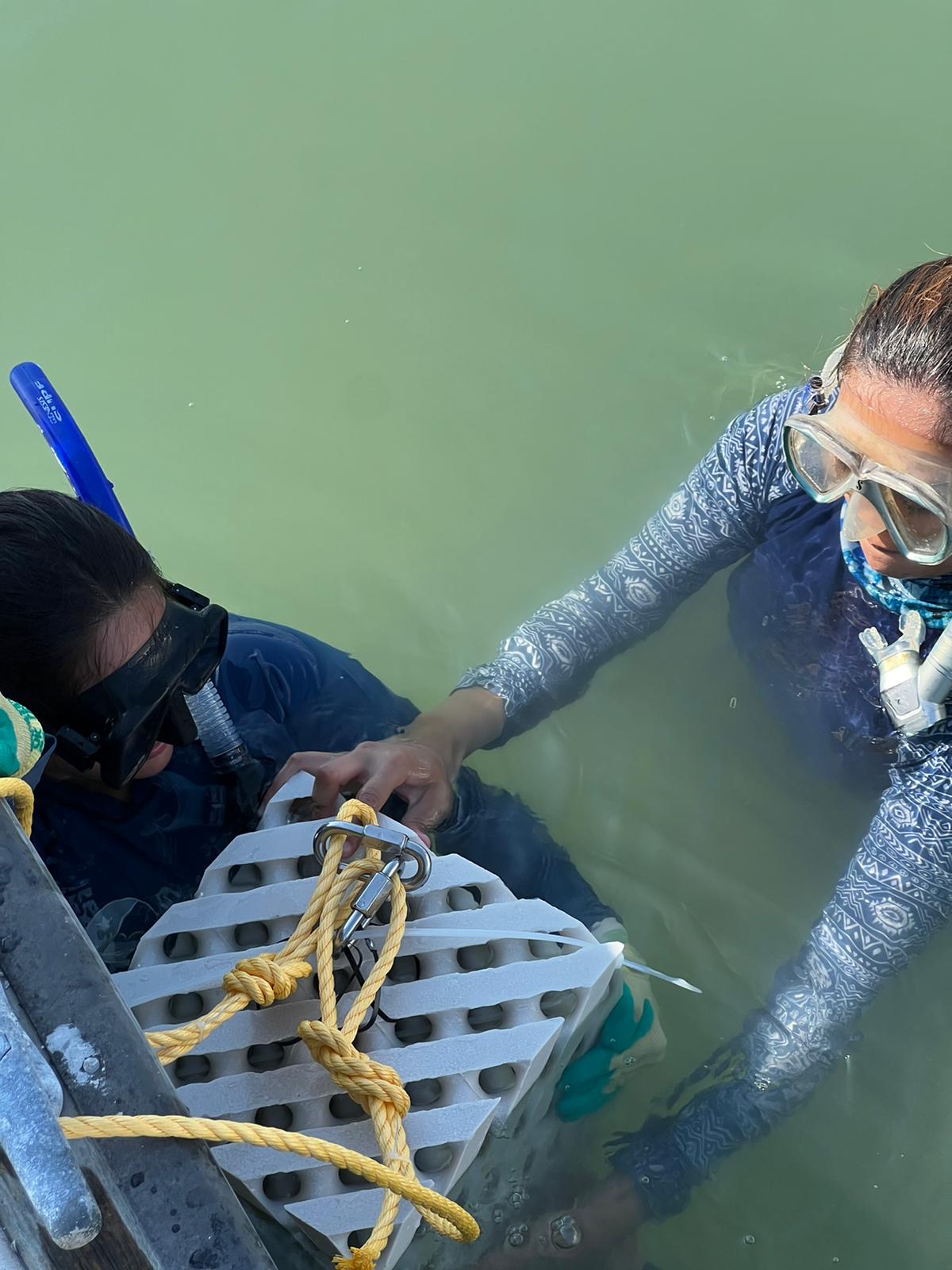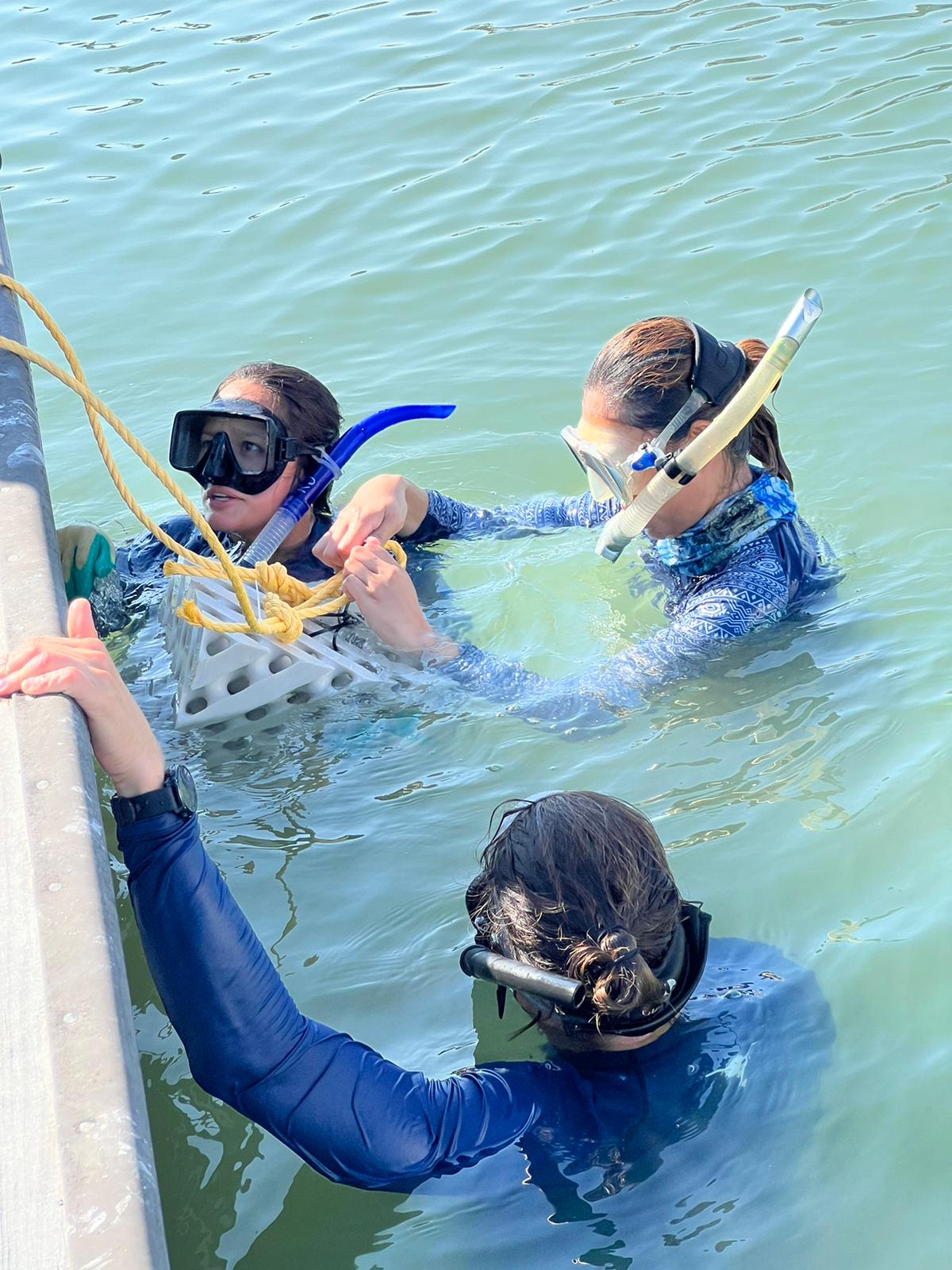Dr. Yunlan "Emma" Zhang, a faculty affiliate of TMI with an appointment in Civil, Architectural and Environmental Engineering, and her team - in collaboration with Dr. Xiao Yu from the University of Florida - are one of the 10 finalists for the Gulf Futures Challenge. Out of 164 applications, they were one of the top teams for the Challenge, which offers $50 million to support and fund "impactful ideas that aim to support a safer, more resilient, and sustainable future for the U.S. Gulf Coast Region."
Her research group, along with Dr. Yu's team from UF, have been developing NACRE - Nature-Inspired Architected Coastal Resilient Ecostructures - a next-generation, modular infrastructure system that leverages large-scale additive manufacturing and eco-friendly materials to protect coastal communities while restoring its ecosystems. The modular building blocks are interlocking, allowing for robotic assembly, making the system quick to deploy and the interlocking blocks easy to set into place, retrieve, and reuse across various coastal environments.

Darin Pi and Kelvin Nguyen hold up examples of the architected materials use in the building process
The system is designed to function as stand-alone features, such as sea walls or breakwaters, or can be integrated with existing structures, like offshore oil platforms and wind turbines. By dissipating wave energy, the systems work as previous environments - such as mangroves and saltwater marshes - have in areas where the existing habitats have been significantly altered. At the same time, the architected materials help to conserve and restore the important ecosystems that have slowly been erroding from the Gulf Coast. The UT and UF team's structures mimic natural habitats, demonstrating that protecting the coast can benefit both man and nature at the same time.
Each of the 10 finalst teams receive an intial project development grant of $300,000 and technical assistance to reinforce their proposals for resubmission. After submitting their revised proposals, two finals will be chosen and awarded $20 million each to carry out their projects, while the remaining 8 will be eligible for up to $875,000 for additional project development.

 Researchers conduct field tests at the UT Marine Science Institute in Port Aransas, Texas.
Researchers conduct field tests at the UT Marine Science Institute in Port Aransas, Texas.
Read more about their project, Architected Materials for Extreme Resistance in Coastal Applications (AMERICA) on the Lever For Change website and the announcement from the University of Florida's College of Engineering press release.

